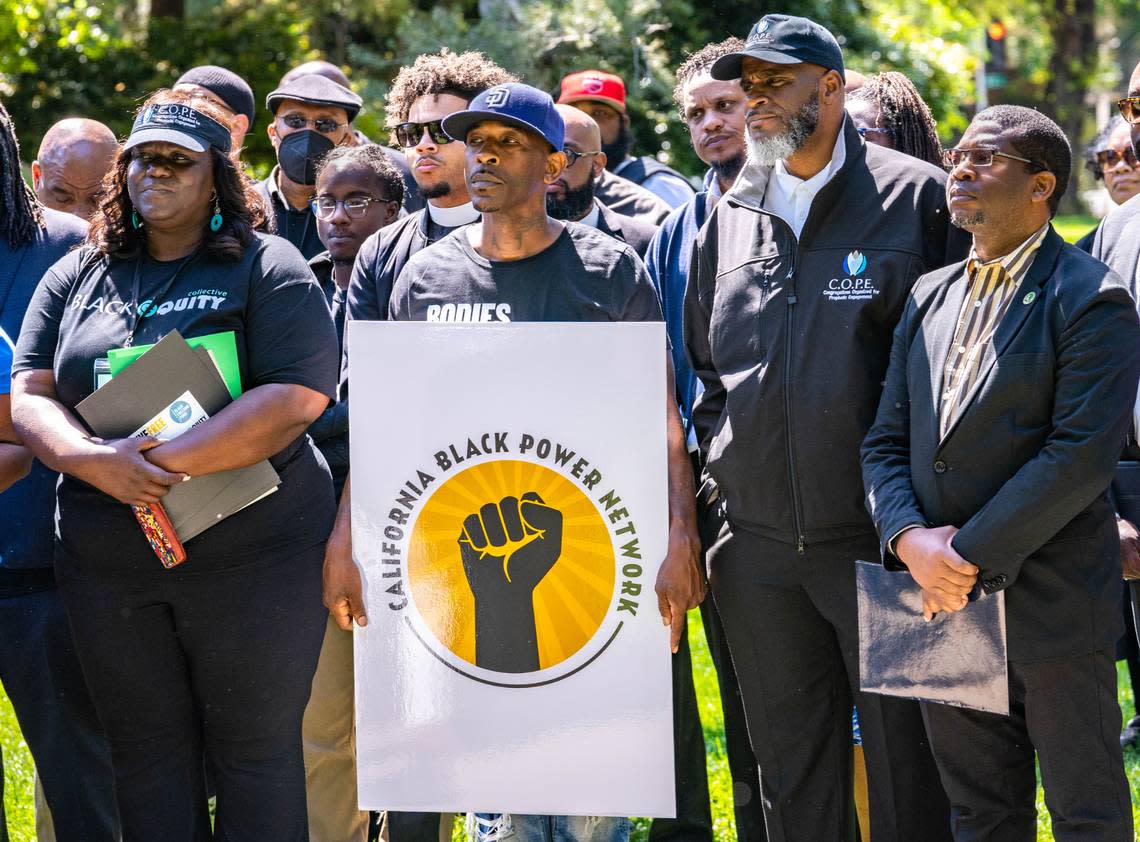California Democrats to spend millions on Black reparations programs in budget agreement

- Oops!Something went wrong.Please try again later.
The budget agreement California Gov. Gavin Newsom and Democratic leaders announced Saturday sets aside $12 million to help the state implement a series of reparations-related bills lawmakers hope will pass this year.
“That is a win,” Democratic Assemblywoman Lori Wilson, the chair of the Legislative Black Caucus, said in an interview.
For one, it was exactly what Black lawmakers asked for, she said. But it also comes in a year when the state was facing an almost $47 billion shortfall.
“Even in a challenging deficit year, we’ve had our leadership and the governor recognize the obligation to those impacted by slavery,” said Wilson, who represents Solano and parts of Contra Costa and Sacramento counties.
The money would help support proposals endorsed by the caucus, including having the state apologize for inflicting harm on Black Californians and allowing slavery to occur in the state. Wilson said the group is currently supporting 15 bills, including two constitutional amendments, and lawmakers may add another one. They hope to pass the bills by the end of the legislative session on Aug. 31.
The effort follows a multi-year study by a state task force to document racist harms inflicted on Black people in California and also to examine how leaders could enact reparations. It was the first of its kind at a state level and dispelled the myth that California was free from slavery.
Pending bills include establishing the California American Freedmen Affairs Agency and having that new department investigate cases of possible racially-motivated eminent domain. They would also prevent the state from punishing prison inmates who refuse to work and help create a grant program to fund community efforts to decrease violence in neighborhoods and schools.
Legislators are also involved in a statewide tour to discuss the findings from the task force and hear from residents.
The current bills do not include setting aside cash payments for descendants of enslaved people.
Wilson said that is still a long-term goal, but proposing such a measure is a matter of timing. Before that, Wilson said, more legislators need to be aware of what the task force found.
“We are not there yet.”

